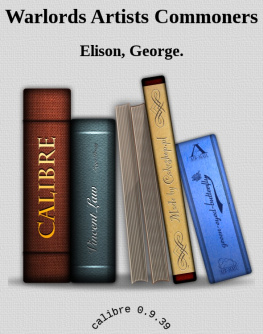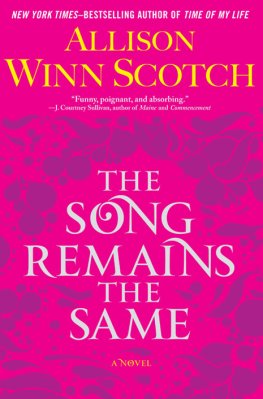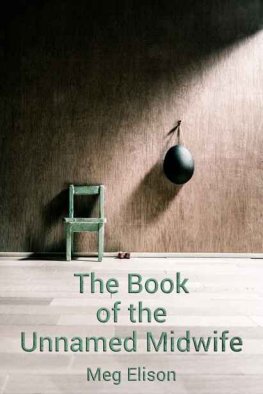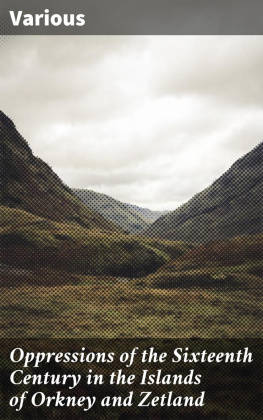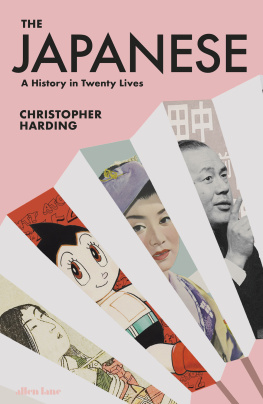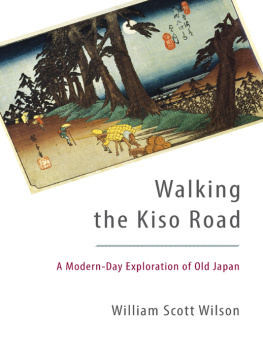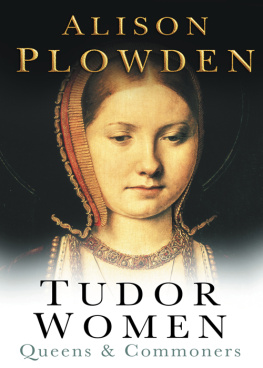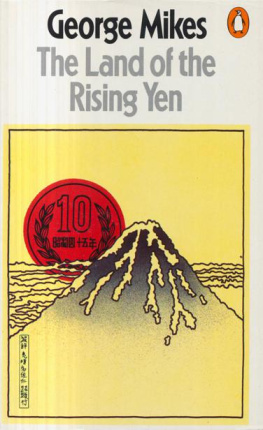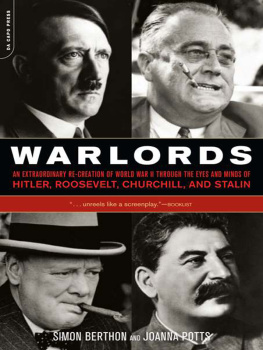George Elison - Warlords, Artists and Commoners: Japan in the Sixteenth Century
Here you can read online George Elison - Warlords, Artists and Commoners: Japan in the Sixteenth Century full text of the book (entire story) in english for free. Download pdf and epub, get meaning, cover and reviews about this ebook. year: 1987, publisher: University of Hawaii Press, genre: Religion. Description of the work, (preface) as well as reviews are available. Best literature library LitArk.com created for fans of good reading and offers a wide selection of genres:
Romance novel
Science fiction
Adventure
Detective
Science
History
Home and family
Prose
Art
Politics
Computer
Non-fiction
Religion
Business
Children
Humor
Choose a favorite category and find really read worthwhile books. Enjoy immersion in the world of imagination, feel the emotions of the characters or learn something new for yourself, make an fascinating discovery.
- Book:Warlords, Artists and Commoners: Japan in the Sixteenth Century
- Author:
- Publisher:University of Hawaii Press
- Genre:
- Year:1987
- Rating:3 / 5
- Favourites:Add to favourites
- Your mark:
- 60
- 1
- 2
- 3
- 4
- 5
Warlords, Artists and Commoners: Japan in the Sixteenth Century: summary, description and annotation
We offer to read an annotation, description, summary or preface (depends on what the author of the book "Warlords, Artists and Commoners: Japan in the Sixteenth Century" wrote himself). If you haven't found the necessary information about the book — write in the comments, we will try to find it.
George Elison: author's other books
Who wrote Warlords, Artists and Commoners: Japan in the Sixteenth Century? Find out the surname, the name of the author of the book and a list of all author's works by series.
Warlords, Artists and Commoners: Japan in the Sixteenth Century — read online for free the complete book (whole text) full work
Below is the text of the book, divided by pages. System saving the place of the last page read, allows you to conveniently read the book "Warlords, Artists and Commoners: Japan in the Sixteenth Century" online for free, without having to search again every time where you left off. Put a bookmark, and you can go to the page where you finished reading at any time.
Font size:
Interval:
Bookmark:

Warlords Artists and Commoners
In this book, some of the leading American and Canadian scholars of Japan focus on a fascinating century. As the sixteenth century began, Japan seemed to be breaking apart, with central authority powerless, and the populace tormented by incessant warfare among provincial barons. Gradually it became apparent that the old order was doomed, but that the Japanese body politic had an immense resilience solid new structures were developing within the society in the midst of seeming chaos. As the century ended, the country was united once again, with the final battle of a century of strife won by a warlord whose successors would rule Japan through two hundred and fifty years of peace. In Japanese institutional history, the sixteenth century marked the waning of the Middle Ages and the coming of a new, Early Modern order.
In the arts, the withered and dreamy ideals of medieval aesthetics gave way to an exuberant spirit. Exciting new styles were called into being by a novel sort of aristocracy that sought to bolster their acquired status with artistic glitter. Warlords affected artistry, and artists played politics commoners achieved distinction through the mastery of noble pastimes. European traders and Catholic missionaries contributed further novelty to the varied genre scene. The century witnessed a dazzling burst of cultural creativity, crowned by the Momoyama epoch, which chroniclers exalted as a golden age.
"As one of the nonspecialists for whom this volume is intended, I count myself indebted to its contributors for an informative and often fascinating account of this complex century in Japan's history. I recommend Warlords, Artists, and Commoners as a book which well fulfills the intent of its makers, to present a readable description and instructive interpretation of the events which so abundantly crowd the scene of sixteenthcentury Japan."Robert L. Backus, University of California, Santa Barbara, Monumenta Nipponica
"Readers will find in this volume a host of fascinating bits of historical information and insight that will serve as grist for interpreting one of Japan's most exciting epochs."Conrad Totman, Yale University, American Historical Review
"An important and powerful book." Choice
George Elison is chairman of the Department of East Asian Languages and Cultures and professor of history and of East Asian languages and cultures at Indiana University. Bardwell L. Smith is the John W. Nason Professor of Asian Studies at Carleton College.
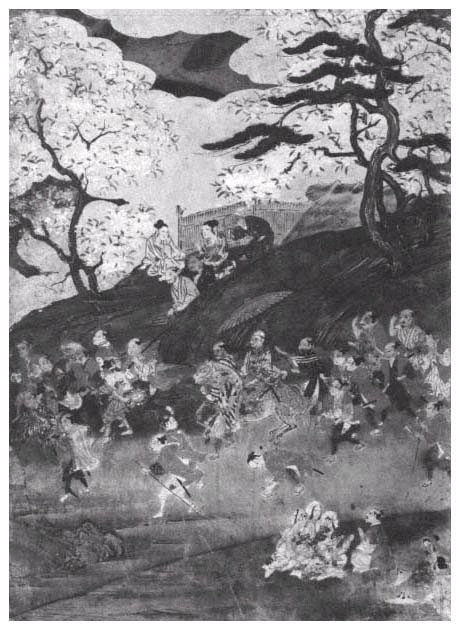
Page ii

Page iii
Warlords, Artists, & Commoners
Japan in the Sixteenth Century
Edited by
George Elison and Bardwell L. Smith
Page iv
Copyright 1981
by The University Press of Hawaii
All Rights Reserved
Printed in the United States of America
First edition 1981
Paperback edition 1987
96 97 6 5 4 3
Library of Congress Cataloging in Publication Data
Main entry under title:
Warlords, artists, and commoners.
"The outcome of a seminar on Japan in the
sixteenth century held at Carleton College during
the winter and spring terms of 1974."
Includes index.
1. JapanCivilization15681600Congresses.
2. JapanHistoryPeriod of civil wars, 14801603
Congresses. I. Elison, George. II. Smith,
Bardwell L.
DS822.2.W35 952'.02 8024128
ISBN 0824806921
ISBN 0824811097 (pbk)
Frontispiece: Detail of HIDEYOSHI VISITING THE BLOSSOMING CHERRIES AT YOSHINO, c. 1594, folding screen. Kimiko and John Powers collection. Photograph by Geoffrey Clements.
Page v
Contents
Acknowledgments
vi
Chronology
ix
Map of Japan in the Sixteenth Century
xvi
Introduction: Japan in the Sixteenth Century
George Elison
Japan's SixteenthCentury Revolution
John Whitney Hall
The City of Sakai and Urban Autonomy
V. Dixon Morris
The Cross and the Sword: Patterns of Momoyama History
George Elison
A Visualization of Eitoku's Lost Paintings at Azuchi Castle
Carolyn Wheelwright
Joha *, a SixteenthCentury Poet of Linked Verse
Donald Keene
City and Country: Song and the Performing Arts in SixteenthCentury Japan
Frank Hoff
Music Cultures of Momoyama Japan
William P. Malm
The Culture of Tea: From Its Origins to Sen no Rikyu*
H. Paul Varley and George Elison
Hideyoshi, the Bountiful Minister
George Elison
Japanese Society and Culture in the Momoyama Era: A Bibliographic Essay
Bardwell L. Smith
Contributors
Notes
Glossary
Index
Page vii
Acknowledgments
This volume of essays is the outcome of a seminar on Japan in the sixteenth century held at Carleton College during the winter and spring terms of 1974 as the second of a series of special seminars on Asia. Selected papers from the first, which dealt with the T'ang period in China, were published in 1976 under the title Essays onT'ang Society: The Interplay of Social, Political and Economic Forces. We should like first of all to thank Mr. and Mrs. John M. Musser for their gift to Carleton, which enables the college to hold seminars of this kind.
In addition to Professors Hall, Keene, Malm, and Varley, who contributed chapters to this volume, the scholars who participated in the seminar over its fifteenweek period included Professors Abe Masao, John Rosenfield, and Andrew Tsubaki. To all of them we wish to express our appreciation. The student members, whose free and thoughtful criticism enriched the seminar, have also earned our sincere appreciation. They were David Aki, John Collidge, Elizabeth Gault, Marshall Gittler, Nancy Haven, Katherine Lock, Marianne McIlvain, Gayle Menich, Terry Moss, Kristina Nelson, Cynthia Pietrak, Jay Swanson, Kenneth Titley, James Treece, and David Russell.
Colleagues who shared their time and their wisdom with us in the preparation of this collection include John Curtis Perry, Paul Martin Sacks, and George Macklin Wilson. Their support and suggestions have contributed much to this book's makeup. Julia MeechPekarik of The Metropolitan Museum of Art in New York and Sato * Jindo* of the Shogakukan Publishing Company in Tokyo gave valuable advice and assistance in regard to the book's illustrations, and to them, too, we are most grateful.
We wish to thank those who provided administrative aid at the time of the seminar and since, especially Terry Basquin, then secretary of the History Department at Carleton, and May Okada, administrative assistant to the Dean of the College. Thanks are also due to Barbara Arnn of the Department of East Asian Languages and Cultures, Indiana University, for her help with the index, and to Robin Barnes and William Elison for drawing the map of Japan.
Page viii
Finally, we should like to acknowledge with gratitude the following institutions for granting us permission to reproduce the works of art which illustrate this volume: Academy for Educational Development, New York Imperial Household Agency, Tokyo Jukoin *, Daitokuji, Kyoto Nanzenji, Kyoto Reiun'in, Myoshinji*, Kyoto
and the Tokyo National Museum.
GE
BLS
BLOOMINGTON, INDIANA
Next pageFont size:
Interval:
Bookmark:
Similar books «Warlords, Artists and Commoners: Japan in the Sixteenth Century»
Look at similar books to Warlords, Artists and Commoners: Japan in the Sixteenth Century. We have selected literature similar in name and meaning in the hope of providing readers with more options to find new, interesting, not yet read works.
Discussion, reviews of the book Warlords, Artists and Commoners: Japan in the Sixteenth Century and just readers' own opinions. Leave your comments, write what you think about the work, its meaning or the main characters. Specify what exactly you liked and what you didn't like, and why you think so.

